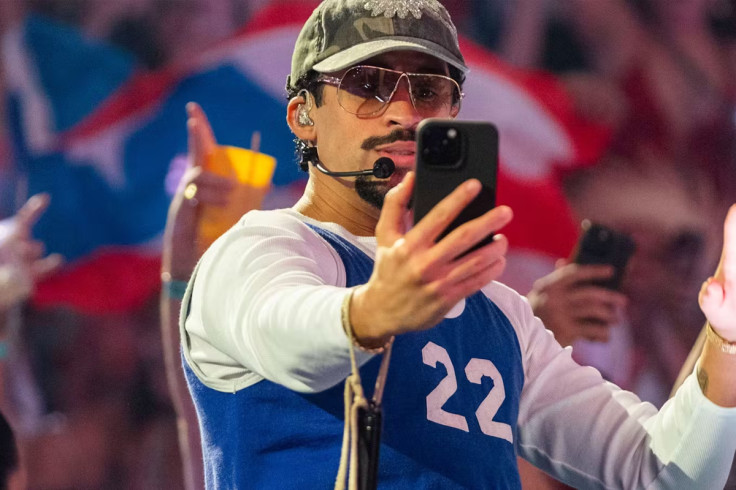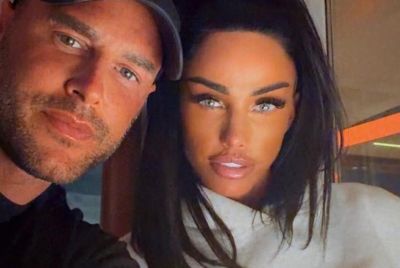Who's Performing at the 'All-American' Halftime Show? Turning Point USA's Response to Bad Bunny Sparks Debate
Turning Point USA plans an 'All-American Halftime Show' to rival Bad Bunny's Super Bowl LX performance

The NFL's decision for Bad Bunny to headline the Super Bowl LX halftime show should've been a standard announcement. After all, the Puerto Rican superstar is one of the biggest artists in the world, with numerous Grammys, sold-out stadiums, and a global fan base. But instead of uniting people through music, the choice has become the latest talking point in America's culture wars.
Largely propagated by Turning Point USA (TPUSA) — the conservative youth organization founded by Charlie Kirk — which has declared it will stage its own rival event: the 'All-American Halftime Show.'
TPUSA unveiled the idea earlier this week, promising a celebration of 'faith, family, and freedom.' They launched a public poll asking followers what kind of music they want featured — choices include 'Americana,' 'Worship,' 'Pop,' and the one that raised eyebrows: 'Anything in English'. Another category that raised eyebrows was 'Hip Hop', as Charlie Kirk has openly criticized the genre.
The group hasn't announced a lineup, a venue, or even how people will be able to watch. But for many observers, the announcement itself — and its timing — was message enough.
Who is Bad Bunny?
For years, Bad Bunny, born Benito Antonio Martínez Ocasio, has defied easy categorization. He's a rapper, singer, and producer who mixes reggaeton with rock, pop, and hip-hop. He paints his nails, wears skirts, and speaks openly about gender equality and Puerto Rican politics. He's also fiercely proud of his roots, performing almost entirely in Spanish.
To his fans, that's exactly what makes him powerful and an unapologetic reflection of a modern, multicultural America. But to his critics, including many conservative figures, he represents something else entirely.
Following the NFL announcement, US President Donald Trump and several right-wing commentators blasted the decision, with some arguing that the Super Bowl should feature 'American artists'. That criticism quickly drew pushback, since Puerto Ricans are, in fact, US citizens.
The look on Tomi Lahren's face when she found out Puerto Rico is part of America. 😭pic.twitter.com/GX5kssF7R9
— Alex Cole (@acnewsitics) October 3, 2025
In a clip that has gone viral online, Fox News commentator Tomi Lahren claims that Bad Bunny isn't an American. In response, progressive commentator Krystal Ball calmly reminds her that Puerto Rico is part of the United States — meaning Bad Bunny is, in fact, an American artist.
So while 'All-American Halftime Show' may not have a single confirmed performer yet, its framing — and the phrase 'Anything in English' — speaks volumes.
That point isn't lost on fans. Social media has been flooded with both anger and humor: memes comparing the two halftime shows, dueling hashtags like #AllAmericanShow and #BadBunnyForever, and endless debates about what 'American' culture even means anymore.
SB Halftime Shows Reflect Cultural Mood
Super Bowl halftime shows have always reflected the cultural mood — from Beyoncé's politically charged 2016 performance to Rihanna's pregnancy reveal last year. But what's happening now feels different. But equally, of the times.
Despite being at the center of a culture war, Bad Bunny is handling the situation with humor. Making a joke about the public's response, 'I think everybody is happy about it — even Fox News.'
Whether the 'All-American Halftime Show' becomes a major broadcast or just a niche event, it has already succeeded in one way: sparking yet another round in the never-ending tug-of-war over culture, identity, and who gets to call themselves American.
Because, as it turns out, the biggest game of the year isn't just being played on the field — it's being fought over what the word 'all-American' even means.
© Copyright IBTimes 2025. All rights reserved.





















